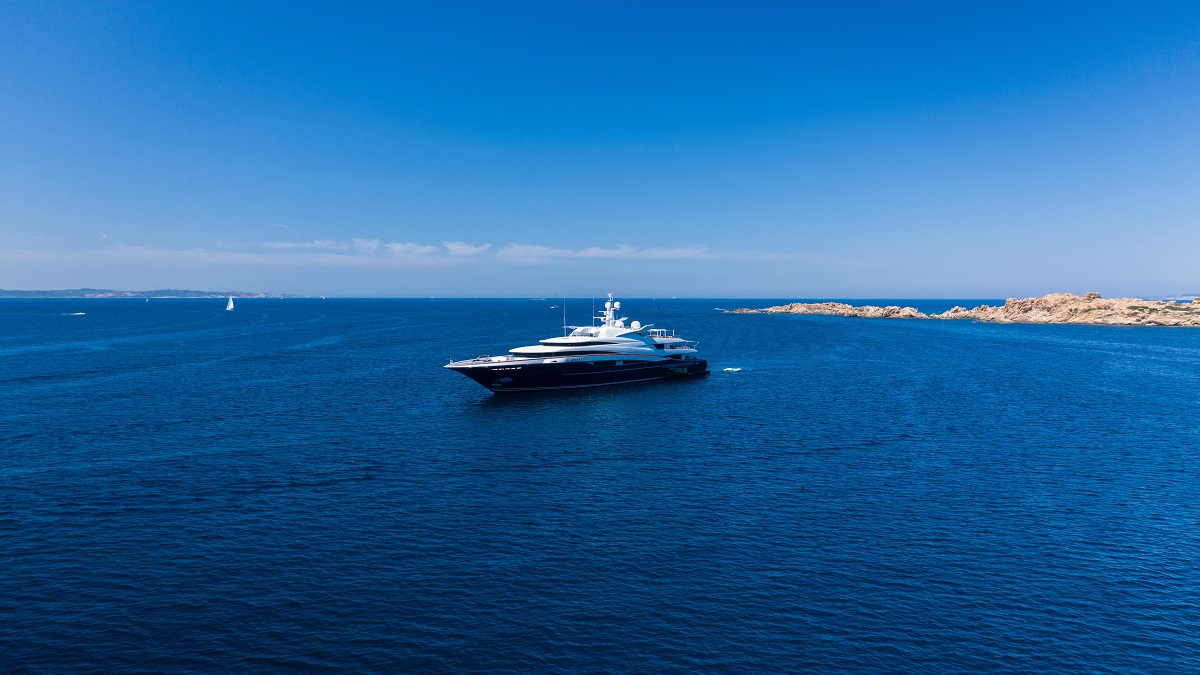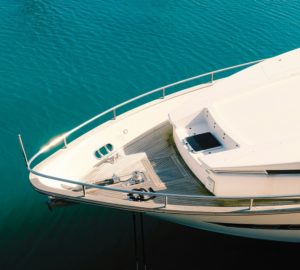A sailing vessel’s indemnification liability coverage is provided through yacht insurance, and it covers any damage to the yacht’s body, property destruction of others, and private property damage aboard the vessel. This insurance may also cover gas supply, towing, and help if your boat gets stuck, depending on the insurance company.
Understanding The Two Parts of Yacht Insurance
Hull insurance
Hull insurance is a direct and all-risk insurance policy that covers damage and includes an agreed amount of hull insurance. The amount settlement is done when the policy is drawn up, and the payment is in full in the event of a total loss. In addition, there’s the possibility of replacement costs insurance for partial losses. Still, sails, batteries, canvas outboards, and sometimes outdrives aren’t covered and are instead at risk of depreciation.
Indemnity and protection (P&I)
Protection and indemnity (P&I) insurance provides the most comprehensive insurance coverages for liability. Because maritime law is unique, you must have coverages specifically designed to protect you from risk-taking situations. P&I will cover any judgments against you and pay to defend you in admiralty courts.
What are the factors that can influence your yacht insurance?
Insurers consider many factors when deciding whether to offer a policy.
Almost any vessel can be insured – for a price. You should consider the following to make sure the policy you buy meets your needs:
- Age of the vessel
- Length
- Value (make sure you consider depreciation over the years of the value of your yacht)
- Speed/Power
- Condition
- Home port
- Type of vessel (Sailing, motor, Inboard, Outboard, utility, cruiser, offshore fishing boat)
- Custom built (boats without serial numbers can be tricky to insure)
- Ownership
- Location of use (which ocean are you planning to locate your boat. Make sure you let your insurance know whenever this changes over the months!)
What does yacht insurance usually cover?
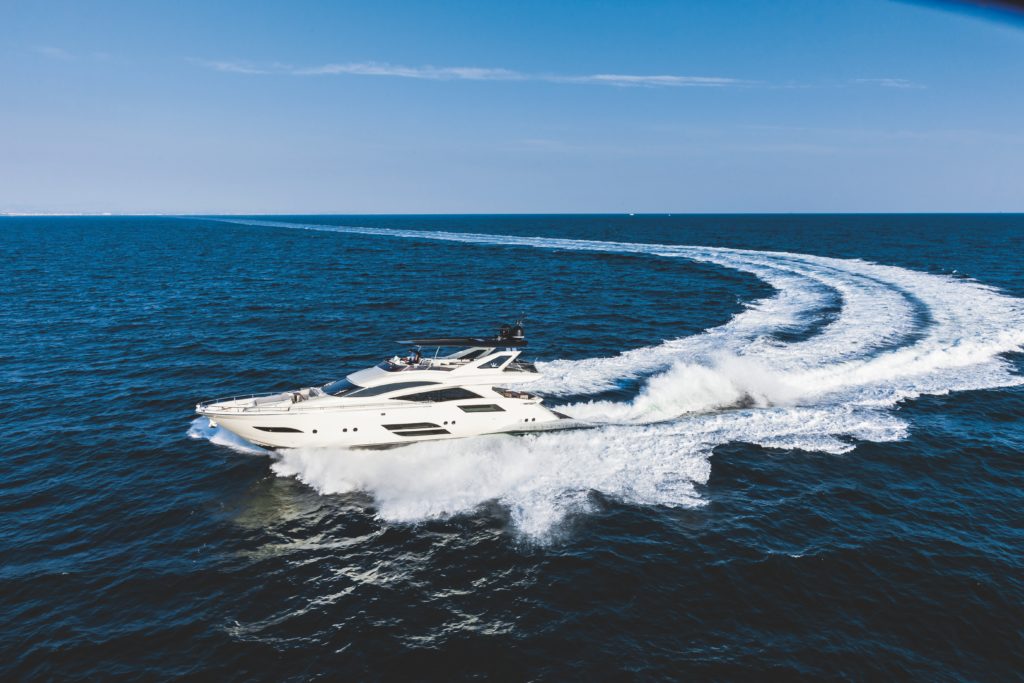
Usually, the yacht insurance covers:
Liability protection: the bare minimum insurance
Property damage liability pays for damage to another person’s property caused by the accident you commit. You are covered if your yacht causes damage to individuals or damages other ships, docks, or buildings. Remember that harm or damage might occur due to direct contact with your boat or events induced by your yacht, such as during heavy wakes. In most cases, boat liability insurance covers you against covered claims and litigation involving settlements and legal expenses. To ensure that you have the right coverage, talk to your advisor regarding your needs and potential dangers.
Hull and machinery coverage
Hull insurance will cover any physical injury to your boat, including motors, trailers and equipment, and even accessories in many instances. Damage from wind and fire are typical claim types.
Uninsured boater coverage
Indemnifies bodily injured passengers of the insured watercraft who suffer injuries due to the uninsured owner of a different vessel.
Search and rescue
The maximum amount is $10,000 for costs that an insured incurs to a government entity like the United States Coast Guard (USCG), which provides emergency assistance and is covered at absolutely no cost.
Marine environmental damage and pollution coverage
This protection is available up to $10,000 in penalties and fines in the event of marine environmental damage as per the policy’s conditions. This coverage is added to the insurance company’s liability and OPA limit.
Agreed value coverage or actual cash value coverage
A cash value policy offers lower coverage than an agreed value insurance policy, however, generally with a lower cost. ACV policies provide coverage up to the value of the vessel. ACV policy would protect up to the price of the market for the boat if there was a complete loss, including depreciation and conditions of the vessel when it suffered the loss.
Crew medical and personal coverage
Reasonable medical and related costs are covered for all onboard passengers leaving or boarding the vessel. These benefits are granted per person instead of per event.
Collisions
If your vessel gets damaged by accident, collision insurance is an optional insurance policy that covers the cost of fixing and replacing the damaged part with less deductible.
Sinking and wreck removal
Insurance for boats generally can cover sinking. However, there are some critical policy limitations. In general, insurance for boats should protect your boat if it sinks due to any covered risk. The policy could reimburse you for the cost of salvage or removal.
What is usually excluded from yacht insurance policies or comes as an extra?

War coverage
Damages caused by acts of war can turn out to be too great to insure, making the repayment too astronomical to be true.
Hurricane insurance
Your boat insurance provider may be able to pay for damages to your vessel caused by wind and hail from a storm in the event of a hurricane unless stated explicitly in the policy. Contact your boat insurance provider to find out what coverage you have during a storm.
Marine life encounters
Most insurance for boats doesn’t provide coverage for marine-related damage such as sharks, whales, and many other species. If you frequently sail in water full of marine creatures, it is possible to discuss a supplemental insurance policy with your insurance provider.
Insects and mold
The majority of yacht insurance policies do not cover insects and mold. It is essential to take the necessary steps to safeguard yourself against any pests on your vessel. So, this means that you must wash, drain, and dry your boat’s equipment after use.
Toys and PWC onboard
The PWC onboard may need to have a separate insurance policy as it is an expensive purchase.
Negligence or criminal acts
No insurance company is accountable for paying for the illegal actions of other people. Damage or loss due to reckless negligence and incompetence is also not acceptable.
Racing
Most insurance coverage for boats won’t cover certain events, such as racing on a yacht. Suppose you plan to use your boat to compete. In that case, you might want to consult your insurance representative about supplemental insurance, precisely the possibility of additional liability insurance if there’s a crash in the course.
Kidnapping and ransom
Because of the high stakes involved – human life and assets such as vessels and cargo — as well as the criminal character and challenging legal context, resolving a hijacking or abduction for ransom is a difficult task. Hence, kidnapping and ransom are not included in yacht insurance.
What do you need to know before picking a yacht insurance policy?
When evaluating physical damage cover, the most significant question is whether the insurance is focused on “agreed value” or “actual cash value” damage payout. If there is a complete loss, most agreed value coverage covers the amount shown on the insurance contract. After depreciation, you will receive compensation.
The actual cash value coverage offers protection up to the vessel’s present market worth at the moment of complete loss, after depreciation and the deductibles.
Although the coverage is smaller in an actual cash value insurance than in agreed value insurance, the policy is generally inexpensive.
The next thing you want to consider while choosing your insurance is the deductible and premium.
The amount you self-insure in the case of a loss is your yacht insurance deductibles. Put another way, it is the amount you spend on claims before your insurance comes in.
The next is premium. Choose insurance that can fit your budget to pay your premium on time without fail.
Another thing to consider is the Intended cruising area. Some policies put restrictions or have a defined area while cruising. So, choose an insurance policy that suits your cruising area so that in case of mishaps, you can get coverage.
Yacht Insurance Requirements

Is yacht insurance mandatory?
While it’s not usually a legal necessity, it is always a good idea. It’s unlikely to cost much, but it might save you a lot of money in a disaster. Even if you or your captain are the finest sailor on the planet, you must consider what would happen if someone else collides with your yacht.
Changing weather may damage your boat, yet you usually have little control over it. Fortunately, most yacht insurance policies aren’t too costly, and the modest additional cost may provide comfort while cruising on the sea.
Does the bank require insurance while you finance the yacht?
Yes, your bank may require proof of yacht insurance if you want to finance the yacht.
Do ports and marinas need your yacht insurance?
For utilizing their facilities, numerous ports and marinas will need you to have boat insurance.
Does renting the yacht require insurance?
If you intend to rent out your yacht, you must have coverage to safeguard your asset, and yacht insurance can be highly beneficial. If you want to rent your yacht, you must get boat insurance to protect yourself from liability hazards, and the insurance covers the majority of liability concerns.
Read also : The yacht charter experience ladder
How much does a yacht insurance cost?

Usually, yacht insurance costs between 1% and 5% percent of the yacht’s value. For instance, you may spend around $2,500 annually to insure a boat worth $100,000.
However, similar to other types of insurance, the cost of your boat insurance depends on you and your vessel. The higher the value of a boat, the greater the insurance cost. Yacht insurance is often costlier than floating insurance since yachts are more expensive. High-powered boats are riskier. Thus, insurance companies consider the kind of engine (inboard or outboard, amount of horsepower, and so on).
How can I lower my yacht insurance cost?

Here are a few steps that you can take to lower your insurance cost.
Limit the cruising area of your yacht
There are navigational restrictions in marine rules, meaning you may only sail inside a specified region. The premiums will be less the smaller and securer the area is.
Have good training and driving records
Insurance companies are interested in your expertise on the water. The completion of a boating course demonstrates proficiency, which reduces your risk. Most insurance companies would consider boating lessons, but they may even provide a rate reduction. Contact your agent to determine whether safety-related boating classes impact your premium rates.
Lower the liability limits
Most insurance companies will require your credit score to establish suitable premiums. Maintaining a good credit score has several advantages, including cheaper insurance prices. To lower your liability limits, consider working on your credit score.
Pick a higher deductible to reduce the premium of your insurance
A greater deductible implies that the policyholder will be responsible for a percentage of the claim, hence decreasing the occurrence of claims. You choose to pay a part of the claim by raising your deductibles out of your cash, and the company will eagerly reduce your premium.
Choose seasonal insurance during the offseason
Fire, theft, vandalism, and winter storms can all cause significant damage and financial burden. You won’t be insured for any winter tragedy that strikes your yacht during the off-season if you don’t have insurance. You’ll be responsible for possibly astronomical expenditures.
Pick a modern boat rather than an old one
A new yacht will cost less to insure than an older one. This is because older ones are susceptible to acquiring defects, while newer ones are not. Further, you can take several steps to improve your yacht’s safety, contributing to lowering your cost. Like, installing an autonomous fire control system may decrease the danger of fire damage and make you eligible for a premium reduction. Additionally, safety devices like radar, depth finders, first aid kits, GPS, emergency kits, and EPIRBs may reduce the danger.
Our advice to find the best insurance broker at the best cost for a yacht
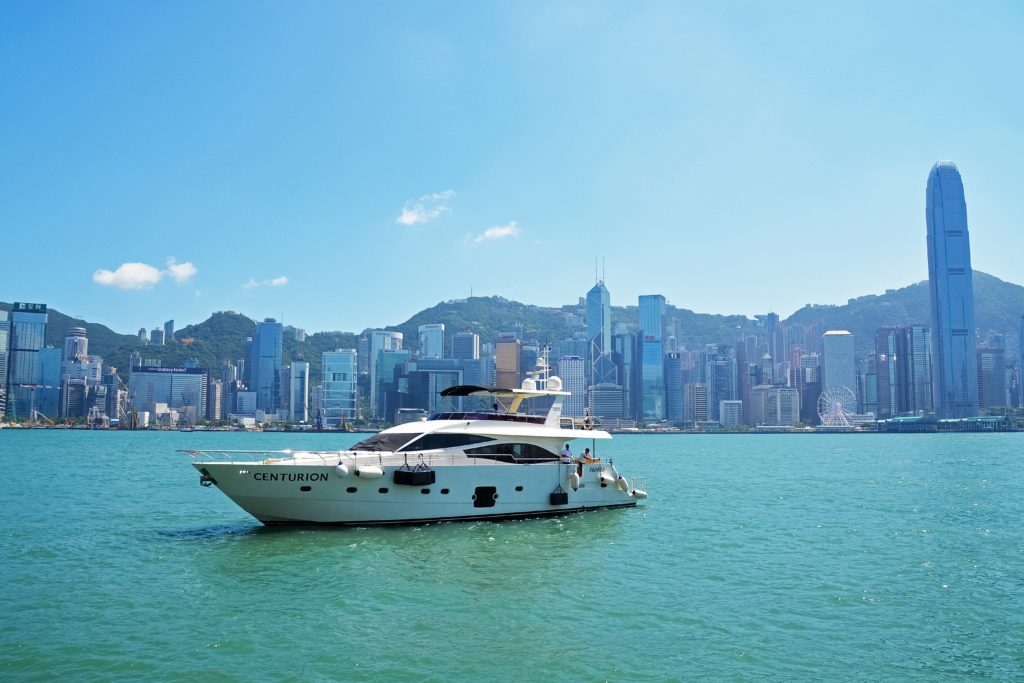
Avoid using your home and car insurer for yachts above 27”.
Usually, boat insurance is meant for vessels less than 26 feet long. Yachts are generally longer than 27 feet, have far more powerful engines, and cost more than smaller vessels.
Yachts typically go greater distances and deeper seas, transport more passengers, need a crew and have several equipment and personal possessions. These variables result in distinct risk exposures and need particular insurance policies, coverage choices, and deductibles.
Maritime law governs rather than state or federal law in deeper seas, which may be more complex. If your boat has a crew, you might be obliged to have Harbor workers and Longshoreman’s covers.
Partnering with an advisor who knows the worth of your boat and how you intend to use your boat can assist you in getting the necessary coverage for any potential catastrophes. You will also need specific insurance coverage if you own a high-performance boat due to the increased risk.
Pick a trustable company with expertise in marine insurance
You can choose your regular insurance provider to get your marine insurance. There are several maritime governing rules when you decide to sail on the sea or plan to sail overseas. Additionally, it is essential to engage with a provider that has a deep understanding of boat and yacht coverage. This is vital at the time of insurance application and in the severe case of a claim.
Special needs might require custom policies
If you have any special needs, additional coverage choices are available for medical costs, private possessions, the boat’s transportation equipment, and more that may be added to any plan. However, that relies on the type of insurance provider you choose.
Optional coverage extensions:
- Trip disruption
- Private property
- Trailer Coverage
- Towing and Emergency Roadside Service
- Uninsured Watercraft
- Individual Liability
Get an experienced yacht broker to help you navigate policies.
You may have 100 policies in front of you and many lucrative offers claiming several things. Yet, making the right insurance takes time and a better understanding of all the coverage. So, an experienced broker can help you navigate all these policies and select one that fits your budget and particular situation.
The best companies for yacht insurance
Many insurance firms provide boat insurance at affordable prices. Shop around to ensure that you receive the necessary information to make an educated selection. Also, there are several websites that offer evaluations of various insurance providers and are excellent starting points for your study.
Communicate with other sailors; determine which aspects they value and why. You would be in a position to make the most excellent option for your requirements when you analyze the services of various companies.
Conclusion
Being on the ocean is a feeling of serenity, tranquility, and impending new experiences. So, this is an encounter you want to go on forever. Further, your sailing boat is a significant investment. Hence, consider having your luxury boat insured to cherish the best of life and keep your investment safe.

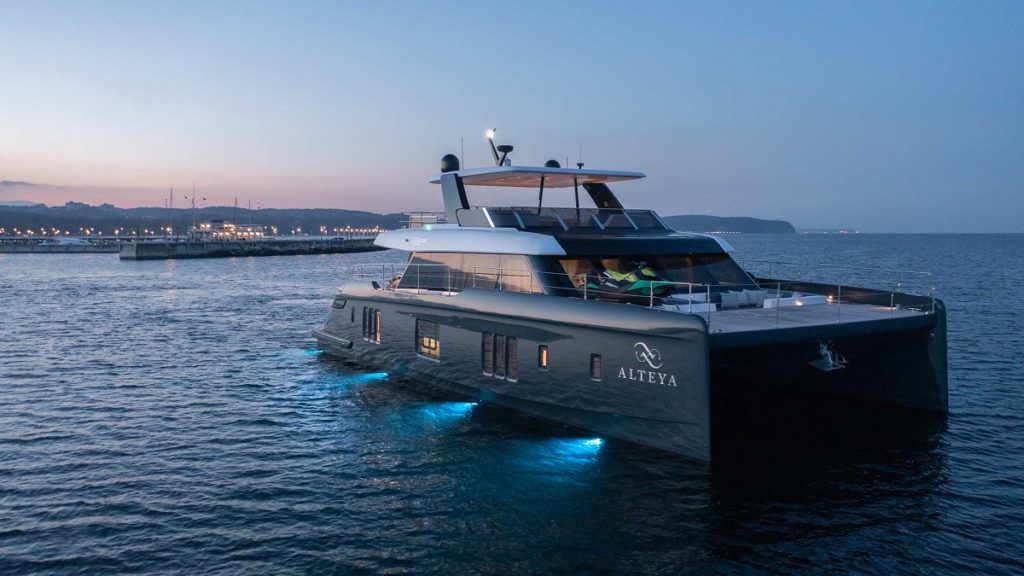

Frequently Asked Questions
All ship and yacht owners are obliged to have marine insurance, mainly when the vessels will be utilized for commercial or transit reasons and move people, labor, or goods overseas.
our yacht insurance usually protects your yacht against frequent dangers such as drowning, storm, fire, collisions, and theft. You may also be protected by boat insurance if you accidentally harm somebody or destroy their property. Your coverage may cover the following boat components:
machinery, attached equipment, hull.
The exclusions from yacht insurance policies include: criminal actions of others, insect infestations, lack of due diligence on the part of the assured or managers, common wear and tear, loss resulting from delay, and intentional wrongdoing by the captain or crew.
The typical cost of boat coverage is between $200 and $500 per year. However, insurance may cost between 1 and 5 percent of the boat’s worth for a yacht or sailboat. For instance, you may spend around $2,500 annually to insure a boat worth $100,000.
Sailboat owners often spend between $250 and $1,500 annually to protect their yachts. This price varies depending on various criteria, including insurance type and insurance amounts, and sailboats usually are less costly to cover than powerboats.
Annual insurance on the yacht will range at roughly 1.5 percent of the boat’s value. The cost to insure a catamaran depends on hull valuation, location, and the boat’s operation.
The insurance coverage of a mega yacht or a super yacht can be around $240,000.
To reduce the cost of yacht insurance, you can take the following steps: installing safety equipment,
demonstrating better boat riding skills by undertaking a boating course, considering your deductibles, limiting your sailing area or working on credit scores.
Hull relates to the vessel’s body. The insurance will cover unexpected damage or loss to the boat anywhere inside the policy’s specified maritime boundaries.
Usually, classic boat insurance is provided by specialized insurance firms who specialize or have experience in protecting classic and antique vessels. For covering your old boat, get a quotation from a specialized insurer and verify that your policy provides the protection you want for a sense of security.

